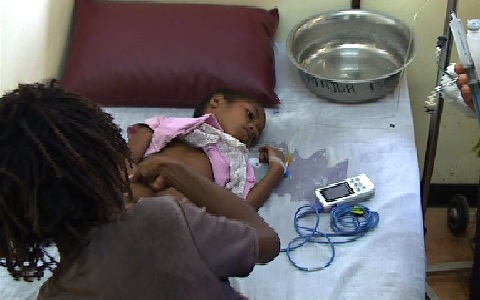A nationwide shortage of the anti-malarial drug, Quinine, is seriously affecting young children being brought in to Lae’s Angau Hospital for severe cases of malaria.
Since November, medical staff at Angau have been using another drug, Artemeter, for cases that require quinine.
Inside the children’s ward, 8 year old Banu Kari, lies on one of the beds. She is one of hundreds of others who have come to Angau for treatment. But because of a shortage of Quinine, the treatment they’re getting is not what is required for serious cases. The nurses are worried.
“Children are coming back for treatement failure malaria,” Says Nurse Pricilla Kaiva. “We shouldn’t be treating them with Artemeter.”
As we filmed her interview, Banu Kari goes into a fit. The interview is interrupted as Sr. Priscilla Kaiva and the team, begin emergency procedures to revive the patient.
Oral medication is readily available. There’s enough, the hospital administration says. But what they don’t have are vials for injections needed for malaria patients who are vomiting.
Staff say it’s a nationwide problem and for two months with no end in sight. As young Banu is being attended, Nurse Kaiva points out another problem.
“We have a shortage of basic equipment,” she says. “We don’t have oxygen catheters or tubes of the appropriate size. In an emergency like this we have to cut the tubes and improvise.”
For this one case, we get a glimpse into the daily struggles of nurses and doctors at Angau hospital. A government facility that’s struggled to get the government ear over the last 18 months and is still struggling through its layers of administrative processes to function.


